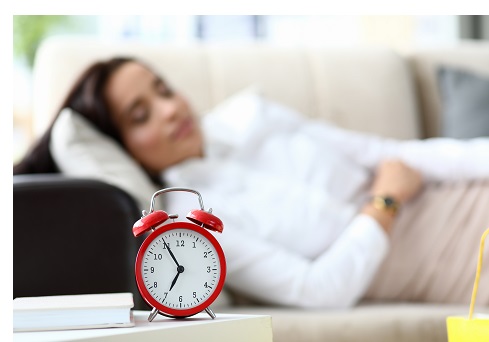10 Strategies to Help You Sleep
April 15, 2020
 In these unprecedented times, it is normal to feel anxious and have difficulty sleeping. So, focusing on maintaining a healthy sleep routine is more important than ever right now. High-quality sleep enables us to better cope with stress and also fortifies our immune system.
In these unprecedented times, it is normal to feel anxious and have difficulty sleeping. So, focusing on maintaining a healthy sleep routine is more important than ever right now. High-quality sleep enables us to better cope with stress and also fortifies our immune system.
-
Follow a consistent routine. Get out of bed at the same time every day. Also, try to adhere to a regular schedule for meals and other activities. Find a rhythm that works best for you and your co-inhabitants.
-
Expose yourself to bright morning light. Light is the chief controller of your body’s natural clock, and daily exposure to bright morning light helps to set the body’s circadian rhythms. Outdoor sunlight is best, and even cloudy days bathe you in more light intensity than indoor lighting. When you are outside getting your daily doses of sunlight and fresh air, keep at least 6 feet away from others at all times.
-
Stay physically active during the day. When you are physically tired from a day with plenty of exercise, you will sleep better at night. Exercise reduces stress and improves mood.
-
Don’t take refuge in your bed during the day. An afternoon nap is OK, but keep it to 30 minutes or less.
-
Avoid caffeine after 2 p.m. If you want to drink coffee or tea later than this, choose decaf versions or herbal teas.
-
Be helpful to others. While continuing to maintain physical distance, see if you can help to take care of your little corner of the world. Check in frequently with your neighbors, friends, and loved ones and be helpful in any safe way possible. Doing altruistic acts can give us a sense of purpose and reduce anxiety and insomnia.
-
Turn off all the news and avoid using electronic devices for at least one hour before bedtime.
-
Minimize alcohol consumption. Though alcohol can help some people fall asleep faster, it keeps you from getting into the deep rejuvenating stages of sleep. Try to leave 4 hours from the time you drink alcohol till when you go to bed to allow adequate time to metabolize it out of your system.
-
Create an ideal sleeping environment. Make sure your bedroom is cool, dark, and quiet.
-
If you need a sleep aid, use melatonin, 2 to 5 mg at bedtime, or a magnesium supplement before bed. Avoid prescription medications. Most of them are addictive.
In Good Health,
James O'Keefe, MD
 In these unprecedented times, it is normal to feel anxious and have difficulty sleeping. So, focusing on maintaining a healthy sleep routine is more important than ever right now. High-quality sleep enables us to better cope with stress and also fortifies our immune system.
In these unprecedented times, it is normal to feel anxious and have difficulty sleeping. So, focusing on maintaining a healthy sleep routine is more important than ever right now. High-quality sleep enables us to better cope with stress and also fortifies our immune system.



